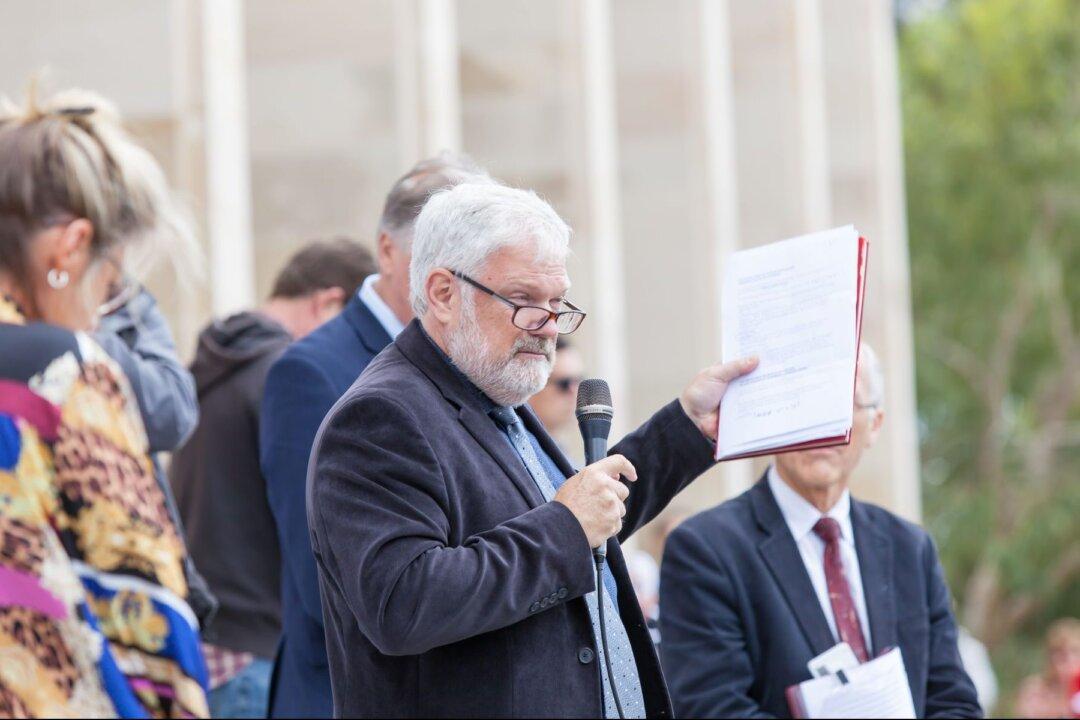The controversial Voluntary Assisted Dying Bill was passed 44-15 in Western Australia’s Legislative Assembly on Sept. 3. The bill, which is the most liberal to be presented in Australia, is under scrutiny for technical amendments and it is not clear when it will be voted on in the Legislative Council.
Canadian filmmaker Kevin Dunn, the keynote speaker for the rally, urged Western Australia’s Labor government to “press the pause button” on the legislation.

